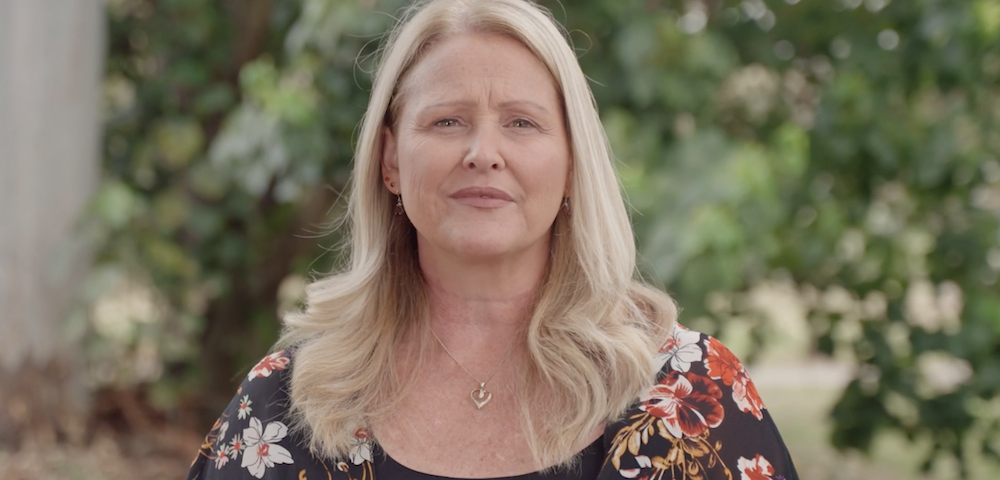
Australia’s Intradermal Vaccination Strategy For Monkeypox Will Protect More People, Says Deputy CMO
Australia was one of the few countries globally to secure supplies and roll out third generation JYNNEOS vaccines for monkeypox. Now, it is one of the few places in the world to increase vaccine coverage by switching to intradermal vaccination with lower doses of JYNNEOS.
In a wide ranging conversation with Star Observer, Australia’s Deputy Chief Medical Officer Professor Michael Kidd outlined the government’s response to the monkeypox outbreak, vaccination plans ahead of Sydney WorldPride 2023 and how the new intradermal vaccination strategy means more people can be protected.
“The advantage of the intradermal route is that you can provide vaccination to four or five people with the same dose that was used previously via the subcutaneous route to get to one person,” Professor Kidd said. “That means that we are afforded a five-fold increase in the number of people we can vaccinate with the number of vaccines we have available now and with the vaccines which will be coming available very soon.”
More Vaccines On The Way
Australia rolled out monkeypox vaccinations on August 8 and ATAGI on August 24, recommended the intradermal administration of JYNNEOS for those who are not severely immunocompromised. Other countries, including the United States have adopted the intradermal vaccination strategy in response to the limited availability of the JYNNEOS vaccine.
The standard subcutaneous route uses 0.5 ml dose of the vaccine, whereas the skin deep intradermal route, which has been shown to be as effective, uses just 0.1 ml of the vaccine.
Professor Kidd revealed that more doses of the vaccine are on its way to Australia next month. “Australia has been very fortunate to have been able to secure supply of the third generation JYNNEOS, the Bavarian Nordic vaccine, which is in very high demand globally,” said Prof Kidd. “We’ve had an initial delivery of 22,000 doses of the vaccine which arrived last month. We’re expecting the balance (around 80,000 doses) over the coming month or two and we have a confirmed order in place for 350,000 doses of the vaccine in 2023.”
The intradermal vaccination strategy will ensure larger coverage with limited supplies. “We get four to five doses from a single standard dose. Intradermally, you can multiply the 450,000 doses by four or five times and you’ve got a much larger number of people who can be protected,” said professor Kidd.
Partnering With Community
The multi-country global outbreak of monkeypox, outside West and Central Africa, where the disease is endemic, was first reported in May 2022. As of September 9, 2022, over 57,000 cases have been recorded in 96 countries, which have not historically reported monkeypox. Australia has reported 128 cases, as of September 8, 2022, whiich includes 67 in Victoria, 50 in New South Wales, 5 in Western Australia, 3 in Queensland, 2 in the Australian Capital Territory, and 2 in South Australia.
“We’re still seeing low numbers compared to many other countries but we are concerned about the transmission especially transmission occurring within Australia,” said Prof Kidd. “The Australian Government’s Department of Health and Aged care reacted very quickly when the outbreak was first announced in the northern hemisphere in May and we’ve been working very closely with peak organisations, especially with AFAO and its affiliates.”
According to the deputy CMO, the lessons from the response to HIV/AIDS came in handy for the government, especially in partnering with community organisations.
“We’ve developed clinical guidance to clinicians on the diagnosis and management. We’ve made sure that we have testing capacity in each of the states and territories, and of course, we also have treatments and vaccines available to protect people against infection.”
Tackling Stigma And Discrimination
Partnering with community organisations also serves another purpose, in tackling the stigma and discrimination in the wider community.
“Stigma and discrimination has no place in public health responses to infectious diseases. In fact, they can make things a lot worse and it’s very important that we’re working together to to reduce that. Monkeypox currently in Australia is occurring in gay and bisexual and other men who have sex with men. But what we know from experience overseas is that this is a virus which can be transmitted from any person to any person. So it is not specifically a disease of gay, bisexual and other men who have sex with men, just as HIV/AIDS was never specifically a disease of gay, bisexual and other men who have sex with men.”
The Sydney WorldPride 2023 and other Pride events in summer have been on the government’s radar while making plans to respond to the outbreak.
“The Australian Government is very aware of Sydney WorldPride in early 2023 and has had lots of discussions already with the New South Wales Department of Health and peak organisations, both nationally and in the state,” said Prof Kidd.
“Clearly, we would like to see as many at-risk people vaccinated and fully protected against monkeypox before the Pride events in summer at the end of this year and the beginning of next year.”
Check For Symptoms
The Deputy CMO said that there has been a strong community response in not only accessing information about the virus but also vaccinations.
“This is obviously an infectious disease, and it is not only about protecting yourself, it’s about protecting everyone else as well,” said Prof Kidd, adding, “We’ve had very strong interest in the vaccinations when they’ve become available.”
Prof. Kidd’s message to the community is to monitor for symptoms and get vaccinated when they become available.
“It is really important that if anyone notices a red spot, a lump, or a blister on their genital area, anal area, their mouth or inside their mouth or elsewhere on the body, get it checked out straightaway by your doctor or local sexual health clinic. This virus can be quite variable in how it presents in individuals. Some people may have only a small number of sores other people can have large numbers and become very very unwell. But anyone who has the sores or fever or swollen glands is at risk of transmitting the virus to other people that come into close contact with particularly close intimate contact.”









